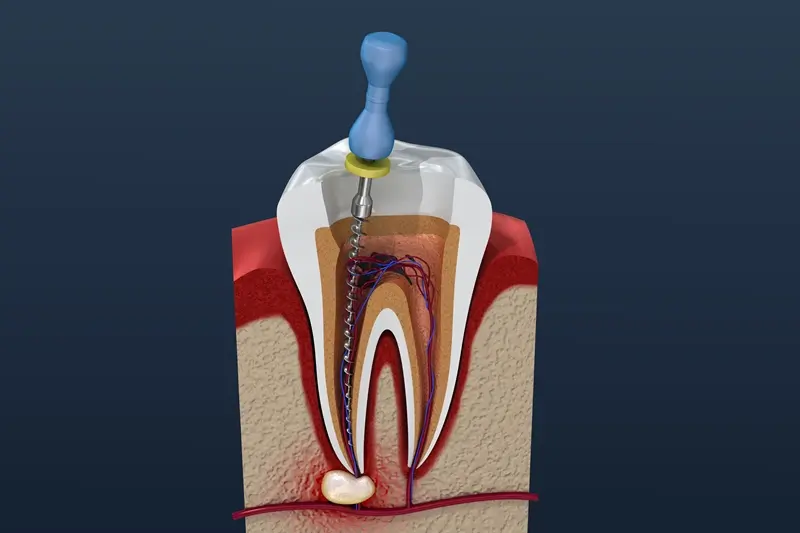If you’ve ever had a toothache, you know how uncomfortable it can be. Exhibited by a constant throbbing or a stinging sensation upon biting into food, toothaches can dramatically alter your quality of life. It likely needs to be checked out by a professional to assess the problem and the correct solution.
Not only can your dentist help you reduce the discomfort that you’re experiencing, but perhaps more importantly, can figure out what is causing it. And as you might imagine, there are several possibilities. Here are a few of them:
Tooth decay
Among the more common causes of toothaches is tooth decay, both in the world in general and in New Zealand in particular. According to a recent study published in the New Zealand Medical Journal, as many as 40% of children experience tooth decay at some point in their lives and it is believed to be the most common chronic disease among children nationally, Stuff reported.
 Smart eating habits can help reduce the likelihood of tooth decay.
Smart eating habits can help reduce the likelihood of tooth decay.Brushing and flossing regularly helps to eliminate the particles that latch on to the teeth when chewing foods, especially the sticky kind that are common in carbohydrates (e.g. bread, pasta, candy etc.). However, anything that is left behind turns into plaque, which forms along the outer surface of the teeth. Saliva and good oral hygiene help to cut down on plaque formation, but not completely. Over time, acid build-up may affect the inner nerve endings of the tooth, which may be what is causing the pain.
In short, the cause of the toothache may be a cavity.
Teeth grinding
Teeth grinding, or bruxism, is something that many people do without realising it. Frequently triggered by stress, teeth grinding can damage the structural integrity of your teeth to the point of causing them to fracture or chip, at least when done repetitively. It may also cause toothaches..
Your dentist will likely be able to tell if you are grinding your teeth during your biannual checkup. It’s important to get this issue resolved quickly because it could lead to other issues, such TMJ, tension headaches, sleep apnea and gum recession. If you’re grinding your teeth at night, a mouth guard works very well. Your dentist will take an impression of your teeth so that the mouthguard is customised to your bite, thus making it more comfortable to wear and less likely to interrupt your sleep cycle.
Abscess tooth
General speaking, tooth decay is usually minor, so long as it is caught early. When it goes unaddressed for an extended period of time, an abscessed tooth is often the result, manifested as an infection typically found along the gum line where your teeth and gums meet.
In addition to gnawing or throbbing pain, here are a few other common symptoms associated with an abscessed tooth:
- Swollen neck glands
- Redness and swelling of the gums
- Swollen upper or lower jaw (depending on which tooth is involved)
- Persistent bitter taste
- Sensitivity to extreme temperatures, either hot or cold
Because an abscessed tooth produced many other symptoms, it’s possible that your primary care physician may point to it as being the cause of your symptoms. However, an abscessed tooth is something that your dentist will be able to diagnose.
Again, depending on the severity of the infection, a root canal may be required to root out diseased tissue. Alternatively, if drainage isn’t possible via a root canal, it may need to be surgically removed.
 An abscess tooth may require root canal to properly address.
An abscess tooth may require root canal to properly address.Prior to scheduling the recommended treatment, your dentist will likely suggest an over-the-counter medicine such as acetaminophen, used in brands like Advil or Tylenol. It’s designed to reduce inflammation and should help to alleviate painful symptoms on a temporary basis.
Damaged filling
Fillings are just that – they’re designed to “fill” the decayed material from the inner portion of your tooth. Usually, they stay in place without any problems. But there may be a scenario in which the filling falls out, by biting down on something hard – food or otherwise – or if it adheres to gooey candies like caramel.
You should be able to tell with your tongue or finger whether a filling is damaged or missing. In either case, pain is a very common symptom. Contact your dentist so you can arrange to have it fixed
Repetitive motions
A great way to keep your teeth clean and enhance saliva flow is with sugarless chewing gum. When a toothbrush and dental floss aren’t available, chewing gum after meals keeps your breath fresh and removes food particles.
But excessive gum chewing can aggravate your upper or lower jaw, the pain of which ultimately may be felt in your teeth. Other repetitive motions involving your mouth can also cause discomfort, such as chewing on writing utensils, your fingernails or ice cubes. The resolution to your pain may be as simple as no longer engaging in these repetitive activities. If you’ve developed a habit, you may want to speak to your primary care physician to talk about possible coping mechanisms.
If you’re experiencing tooth pain, City Dentists will help you find relief. Contact us today to schedule an appointment.
